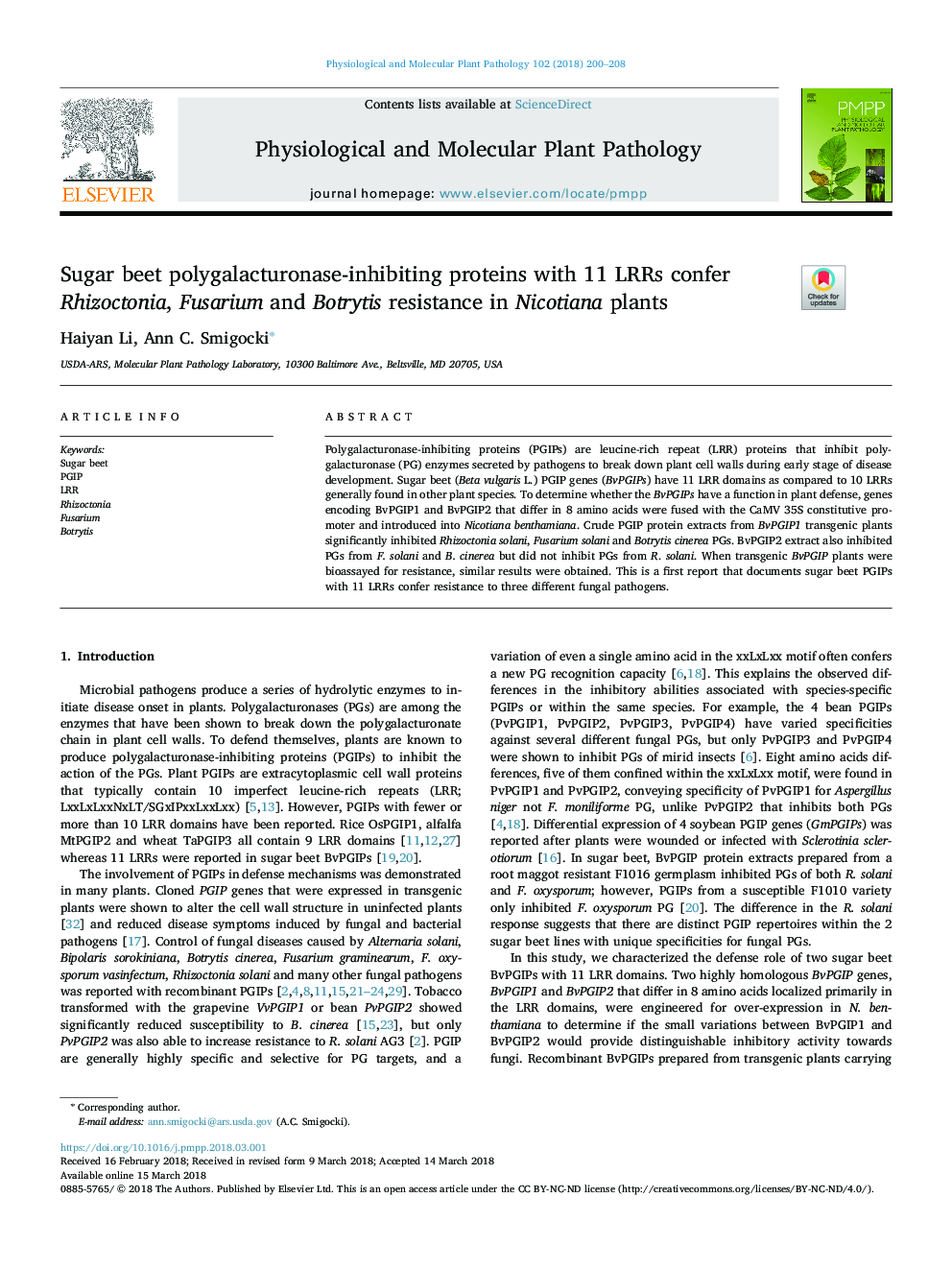| Article ID | Journal | Published Year | Pages | File Type |
|---|---|---|---|---|
| 8649253 | Physiological and Molecular Plant Pathology | 2018 | 9 Pages |
Abstract
Polygalacturonase-inhibiting proteins (PGIPs) are leucine-rich repeat (LRR) proteins that inhibit polygalacturonase (PG) enzymes secreted by pathogens to break down plant cell walls during early stage of disease development. Sugar beet (Beta vulgaris L.) PGIP genes (BvPGIPs) have 11 LRR domains as compared to 10 LRRs generally found in other plant species. To determine whether the BvPGIPs have a function in plant defense, genes encoding BvPGIP1 and BvPGIP2 that differ in 8 amino acids were fused with the CaMV 35S constitutive promoter and introduced into Nicotiana benthamiana. Crude PGIP protein extracts from BvPGIP1 transgenic plants significantly inhibited Rhizoctonia solani, Fusarium solani and Botrytis cinerea PGs. BvPGIP2 extract also inhibited PGs from F. solani and B. cinerea but did not inhibit PGs from R. solani. When transgenic BvPGIP plants were bioassayed for resistance, similar results were obtained. This is a first report that documents sugar beet PGIPs with 11 LRRs confer resistance to three different fungal pathogens.
Related Topics
Life Sciences
Agricultural and Biological Sciences
Plant Science
Authors
Haiyan Li, Ann C. Smigocki,
